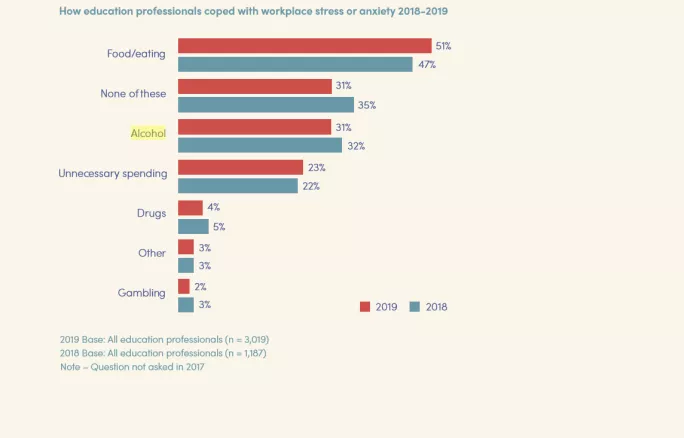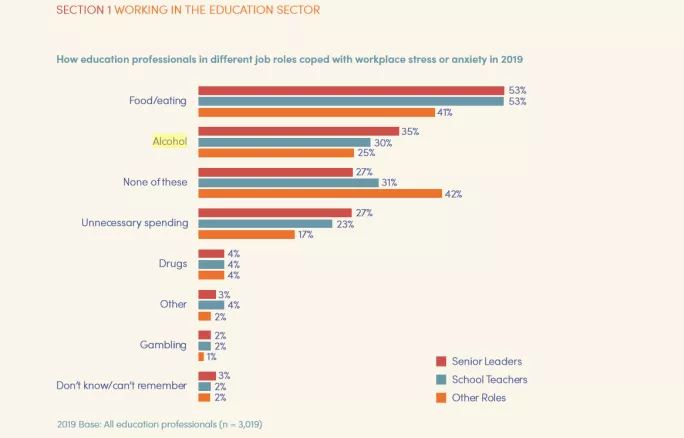More teachers and school leaders are turning to food to help cope with workplace stress or anxiety, new research shows.
Research by the Education Support charity shows 51 per cent of educational professionals used food to cope with stress in 2019, up from 47 per cent last year.
But the number turning to alcohol is down slightly to 30 per cent this year, from 31 per cent last year.
Quick read: Wellbeing: how to be a happy teacher
Quick listen: The problem with whole-school behaviour policies
Want to know more? Three psychology tips to improve pupil behaviour
The findings are outlined in charity’s Wellbeing Support index 2019, published tomorrow, which shows a “concerning” rise in stress levels within the teaching profession, including that 73 per cent of classroom teachers reported being stressed in 2019, compared with 64 per cent in 2018 and 67 per cent in 2017.
But it revealed that senior leaders are the group under most stress, with a total of 84 per cent saying they were stressed this year, up from 80 per cent in 2018 and 75 per cent in 2017.
Other ways of coping with stress included “undertaking unnecessary spending” which has gone up by 1 per cent to 23 per cent (see chart above).
The research was conducted using an online survey of education professionals drawn from YouGov’s panel. The total sample size was 3,019 education professionals and the survey was conducted during the period 25 June to 29 July 2019. The sample included all job roles within the education profession from senior leaders through to support staff working in the early years, primary, secondary, further, adult and vocational education sectors.






